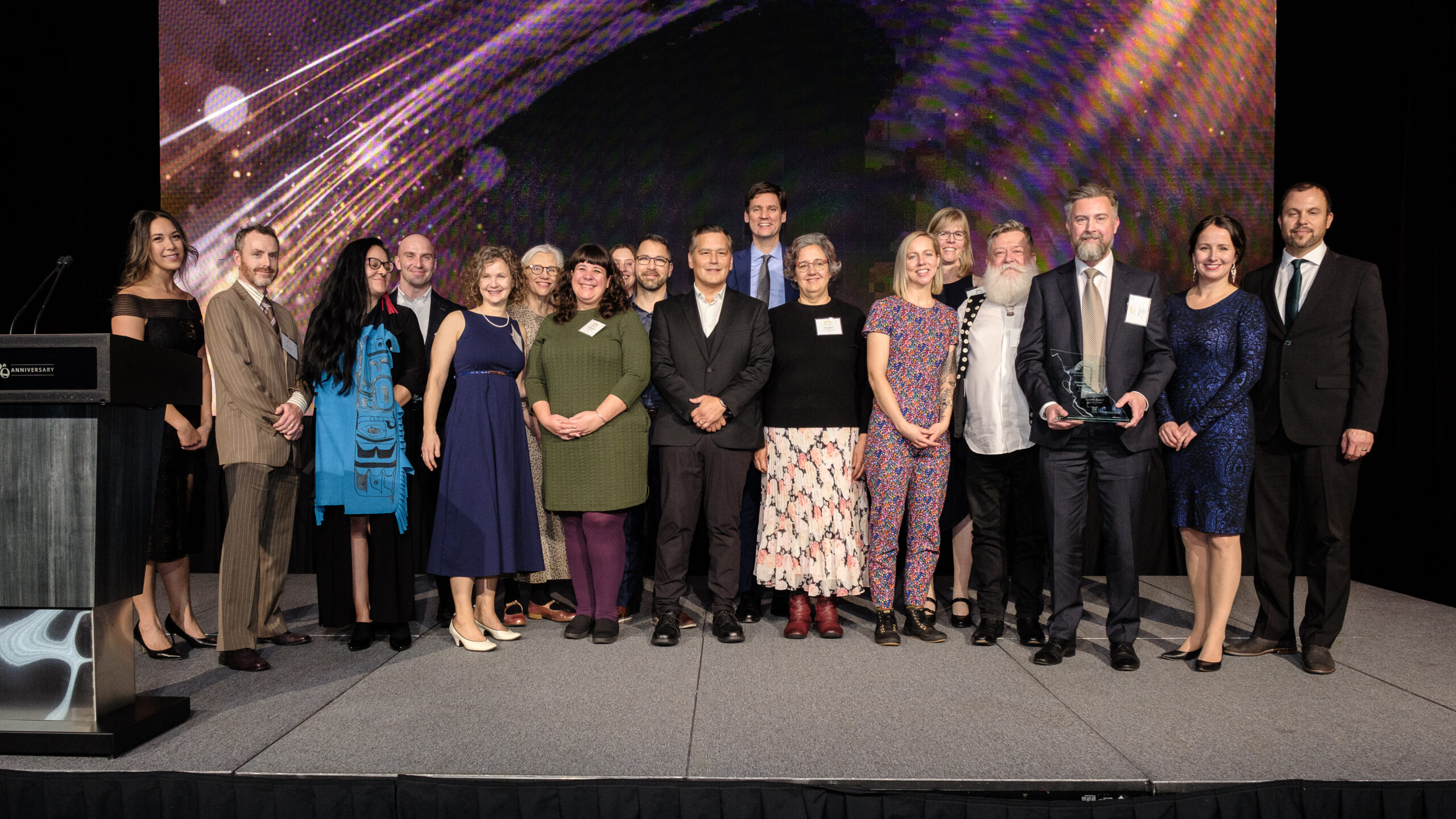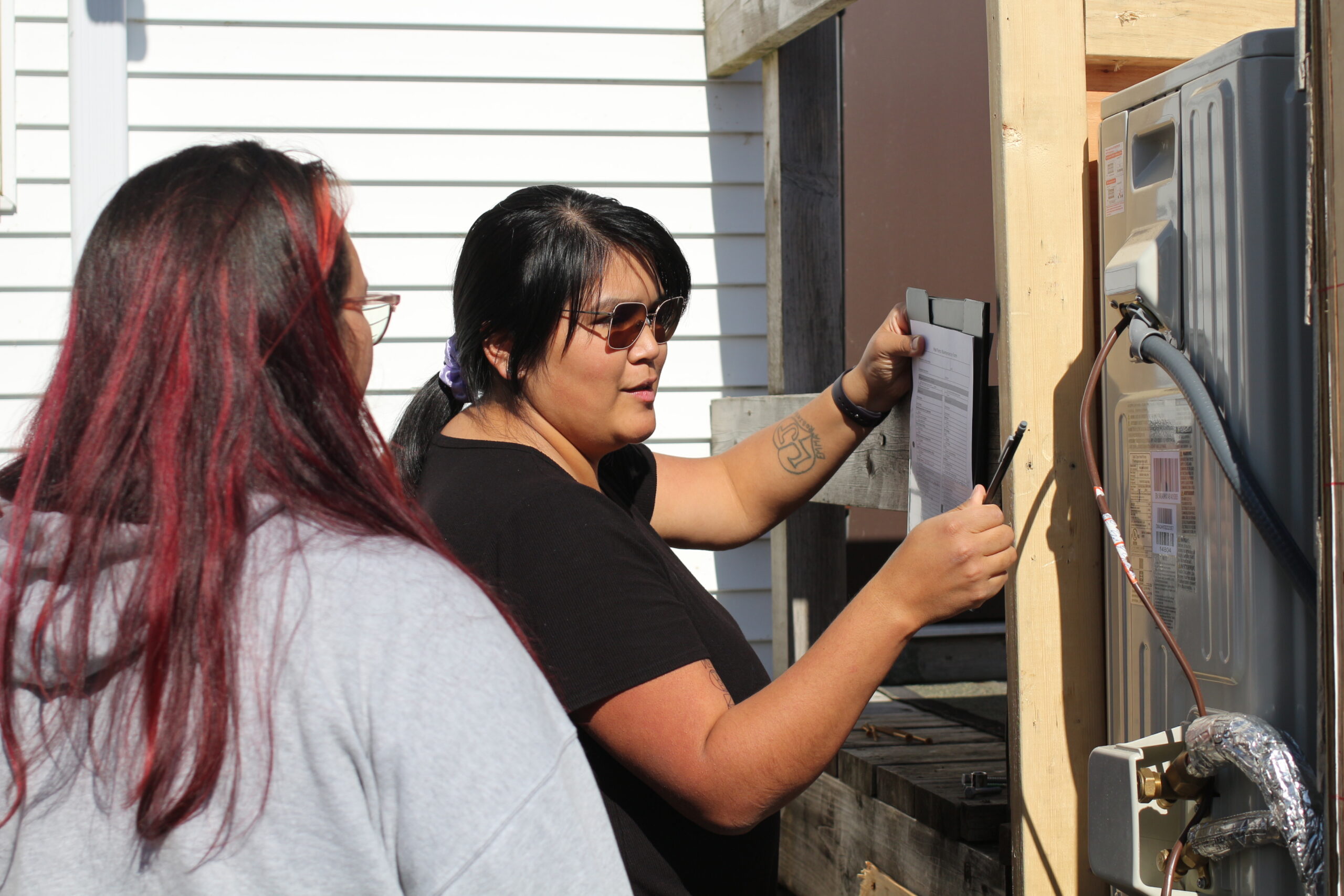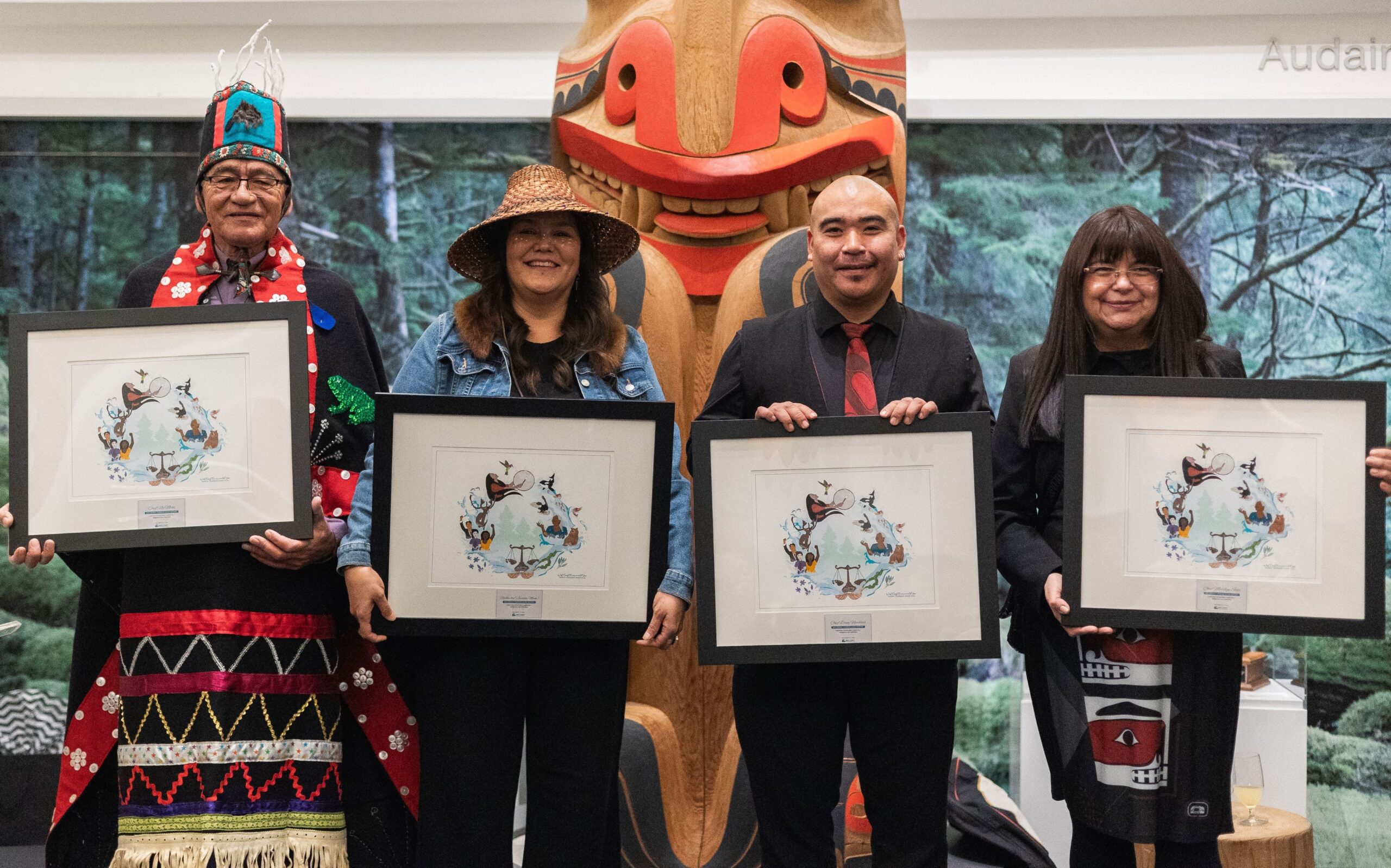The 2024 BC Premier’s Awards recognized a clean energy initiative that features climate innovators from across CFN member Nations. The CleanBC Remote Community Energy Strategy (RCES), spearheaded by BC’s Ministry of Energy and Climate Solutions, received top honours in the “regional impact” category.
A collaborative initiative, the RCES aims to drastically reduce diesel consumption in remote communities, and it has been driven in large part by the RCES Working Group, a First Nations-led working group with very strong representation from CFN member Nations. “Even though it’s got diverse perspectives from all over BC, we operate as one voice,” says Trent Moraes, a Haida representative and Co-Chair of the group, who is Deputy Chief Councillor for the Skidegate Band Council and also leads CFN’s Shoreline Cleanup program.
Out of approximately 44 remote communities in BC that are not connected to the provincial electricity grid, most are First Nation communities that depend on diesel fuel to generate power and heat. In 2022, the RCES Working Group produced a Recommendations Report (pdf) that identified actions and strategies for the Province to achieve the “CleanBC goal of 80% diesel reduction in remote communities by 2030” by decarbonizing remote community electricity and heating systems.
The RCES Working Group includes four CFN member Nations (Gitga’at, Haida, Heiltsuk and Nuxalk), along with the Kwikwasut’inuxw Haxwa’mis, Ulkatcho and Xeni Gwet’in Nations. Since it began, RCES has led to several community-led clean energy projects, such as the installation of energy-efficient heat pumps and large-scale solar panel installations in remote communities across the North and Central Coast and Haida Gwaii.
CFN is proud to contribute to the success of the RCES initiative and will continue to play a lead role in reducing emissions through its Indigenous Climate Action Network (ICAN), which supports Indigenous leadership in climate action for communities across the province. At present there are 13 Climate Action Coordinators who drive climate action in 12 coastal communities, and the cohort is expected to grow to 24 total over the next three years.
For more about the award and the RCES Working Group that continues to provide climate leadership, watch the video below!


